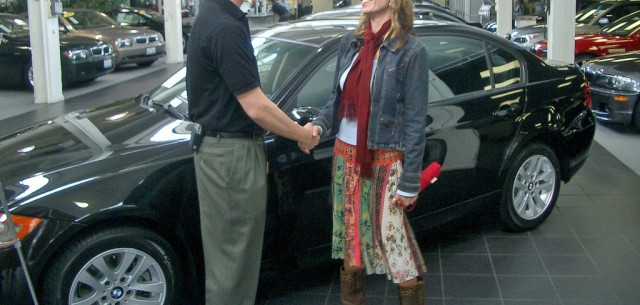What We Want to Buy

The media (and businesses) would like to know why millennials aren’t buying things, and in a previous post, Logan said plainly that it’s because she doesn’t have money, and doesn’t feel secure about the economy. The Atlantic’s Derek Thompson is looking at millennial spending habits again in their September issue (“The Cheapest Generation”) looking at not only why we aren’t buying things (“we” being between the ages of 21–34, according to the piece — these numbers vary because no one seems to agree what the exact age range for a millennial actually is), but also what that means for the economy. The U.S. economy has been able to pull out of previous recessions precisely because previous generations demanded new homes and cars, which spurred construction and automobile manufacturing — industries that employ millions of blue-collar, middle class workers (my father being one of them). The demand for houses and cars isn’t as great this time around.
Not all of us are broke and feeling insecure. A lot of my friends are getting married this year, and others have babies on the way. They have just bought homes, or are saving now to buy homes. And some, who are single like me, and who aren’t planning on getting married or having children any time soon, are saving money and shedding as much debt as possible. That money isn’t just going to sit in the bank forever — we intend to spend it. So what do we want to buy?
Homes. Yes, we want to buy homes. I’ve had two millennial-age friends who have bought apartments in New York City (Brooklyn, specifically), and that idea seemed out of reach to me until I watched these friends save dilligently for years to do it. Reports of 30-year, fixed-rate mortgages reaching all-time lows this summer have been enticing — if you’re lucky enough to get one approved from the bank, of course. I still don’t believe I will ever be a homeowner in New York City, and am fine with renting for the foreseeable future, but hearts and minds change, and I can picture myself owning a home somewhere in the quiet countryside one day. And, yes, I will take the money I’m keeping in savings to buy it. I’d also like to add here that although I have a lot of friends who are getting married, I have a lot of friends who are also content with being single (which, is another popular Atlantic piece). We want homes that make sense for our single selves (which may explain the growing popularity of these tiny homes).
Thompson also argues that millennials have gone from wanting cars to wanting smartphones, because technology has come with a significant price tag (generations before us never had to budget for a $1,000+ annual cellular data plan), and has also given us access to things like Zipcar. Sure, Zipcar is great for big cities, but if I were to move back to the suburbs of Southern California, I’d definitely want to own my own car again. When I want to get on the road, I want to leave the house and hop in my car — not check an app and go hunting for an available car. My younger brother, who lives in California, feels the same way — he just used his savings to buy a new Honda (here’s another friend who just bought a car).
We know what we want to buy — well-designed, efficient, things that make sense for our lifestyles — and we’ll buy it when we’re ready (some of us already are!). Logan doesn’t have money now, but she will eventually (we are, after all, building a business together). And when the money is in the bank, it’ll be spent. So stop calling our generation “cheap.”
Photo: BrianTeutsch
Support The Billfold
The Billfold continues to exist thanks to support from our readers. Help us continue to do our work by making a monthly pledge on Patreon or a one-time-only contribution through PayPal.
Comments